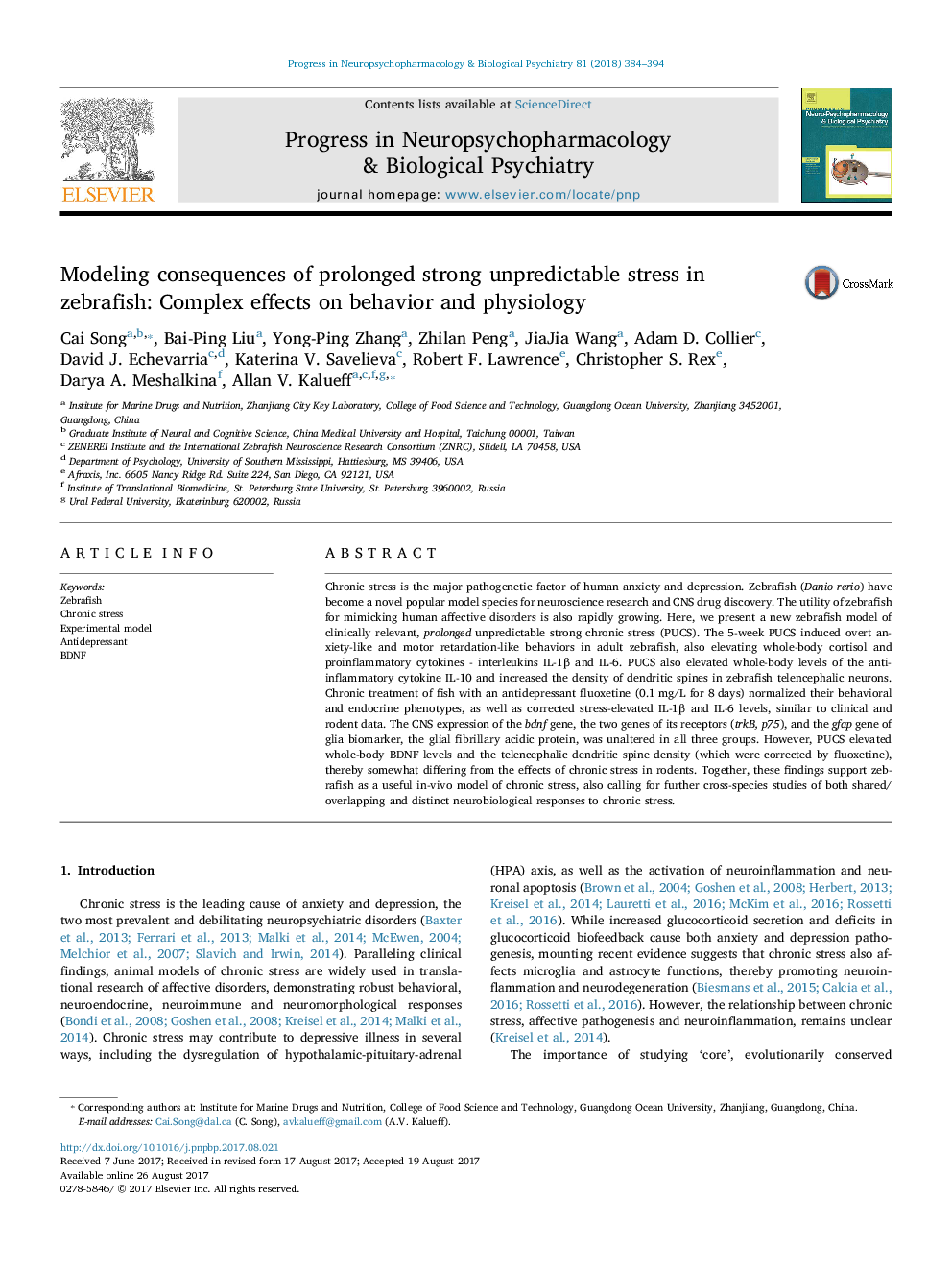ترجمه فارسی عنوان مقاله
عواقب مدل سازی استرس طولانی مدت و غیر قابل پیش بینی قوی در ماهی قزل آلا: اثرات پیچیده بر رفتار و فیزیولوژی
عنوان انگلیسی
Modeling consequences of prolonged strong unpredictable stress in zebrafish: Complex effects on behavior and physiology
| کد مقاله | سال انتشار | تعداد صفحات مقاله انگلیسی |
|---|---|---|
| 155173 | 2018 | 11 صفحه PDF |
منبع

Publisher : Elsevier - Science Direct (الزویر - ساینس دایرکت)
Journal : Progress in Neuro-Psychopharmacology and Biological Psychiatry, Volume 81, 2 February 2018, Pages 384-394

